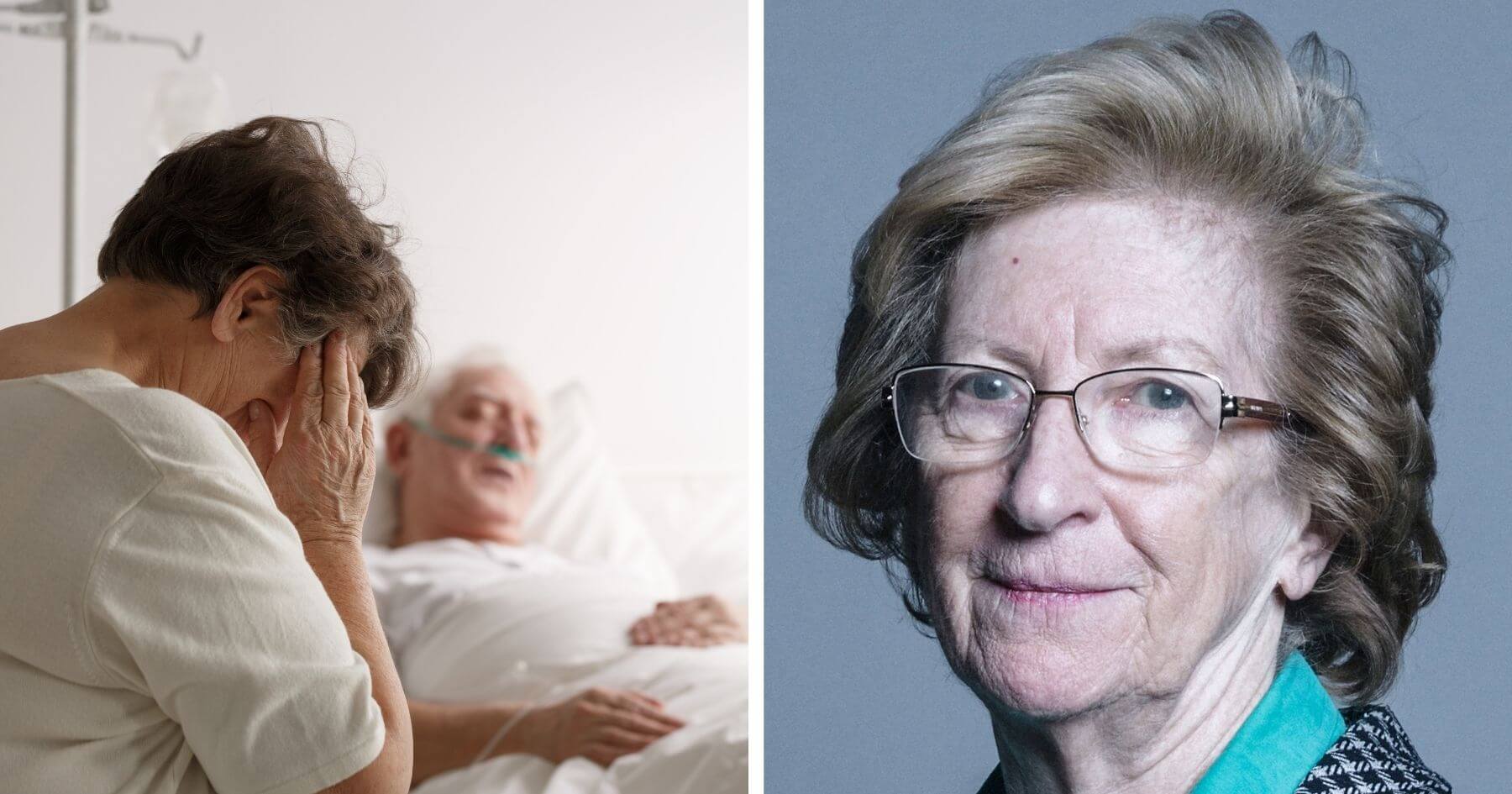A new assisted suicide Bill received its first reading in the House of Lords today only six years after a similarly worded assisted suicide Bill was defeated by an almost three to one majority.
Baroness Molly Meacher, Chair of the pro-assisted suicide group, ‘Dignity in Dying’, has put forward a private member’s bill on assisted suicide that received its First Reading in the House of Lords today. A Second Reading is expected in the autumn.
The Bill follows the Marris-Falconer Assisted Dying Bill (2015), which was defeated by a majority of 330 to 118 MPs.
According to supporters of the Bill, Dignity in Dying, “[t]he bill is modelled on legislation that has been in place in Oregon, USA for over 23 years […]”
Assisted suicide in Britain
Assisted suicide remains a criminal offence in the UK under the Suicide Act 1961. If a doctor assists in the suicide of a patient, they could spend up to 14 years in prison.
Since their Bill’s resounding defeat in 2015, assisted suicide supporters have since attempted to pass assisted suicide legislation through the courts. All such attempts have so far failed. In 2019, the high court said the courts were not the place to decide moral issues. In a ruling concerning a man with motor neurone disease who wanted to be assisted in suicide, the court said: “In our judgment the courts are not the venue for arguments that have failed to convince parliament”.
Fear of being a ‘burden’
Countries like Canada, where the practice has already been legalised, reveal that the motivations for assisted suicide are largely social and not related to physical suffering. In 2019 for example, Canada reported that more than a third (34%) of those who opted for “medical assistance in dying” cited concerns of being a burden to family or carers. A further 13.7% cited “isolation or loneliness” as their reason for procuring an assisted suicide.
This experience is corroborated by the Oregon Health Authority, which found a series of concerns not related to physical suffering for people who ended their lives by assisted suicide.
The report lists ‘End of Life Concerns’ of patients who underwent an assisted suicide in 2020. 53.1% of patients were concerned with being a “burden on family, friends/caregivers”. 94.3% of patients were concerned with being “Less able to engage in activities making life enjoyable”. 93.1% were concerned with “losing autonomy” and 71.8% were concerned with “loss of dignity”. Of the total who have died since 1997, 27.4% have listed “inadequate pain control, or concern about it” as one of their end-of-life concerns.
Calls for the legalisation of assisted suicide come at the same time as a global pandemic, which is having an adverse effect on many people’s mental health. In October 2020, a 90-year-old woman was euthanised in Canada because she said she couldn’t cope with another lockdown.
Pushing the boundaries
While proposed changes to assisted suicide legislation would likely not permit an assisted suicide under these circumstances, other countries that have introduced supposedly restricted assisted suicide and euthanasia legislation have seen an expansion of their laws as medical professionals and activists push the boundaries of acceptable practice.
Euthanasia has been legal in the Netherlands since 2002. The law permits voluntary euthanasia for anyone over the age of 16, and children aged 13-15 can be euthanised with their parents’ consent. Earlier this year, the Dutch government said it would be changing the regulations to allow doctors to end the lives of terminally ill children between the ages of one and twelve.
Right To Life UK spokesperson, Catherine Robinson, said:
“Supporters of a change in the law on assisted suicide frame the debate in terms of unbearable suffering ‘beyond the reach of palliative care’, as Baroness Meacher put it. Yet the experience of other jurisdictions, particularly Canada and Oregon, which have legalised assisted suicide and/or euthanasia tell a very different story. The majority of people who choose to end their own lives with medical assistance say it is because they fear being a ‘burden’, or ‘loss of autonomy’ or ‘loss of dignity’. These reasons have nothing to do with physical suffering, and it should be a source of scandal that people who are struggling in this personal, psychological and social manner, are offered death as a solution”.












